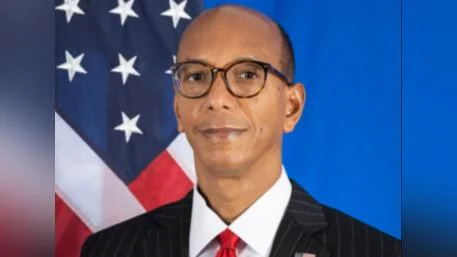Good afternoon. Ambassador Linda Thomas-Greenfield introduced a U.S.-led resolution at the United Nations General Assembly, focusing on artificial intelligence systems for sustainable development. She emphasized the dual nature of AI, highlighting both its challenges and opportunities.
Thomas-Greenfield stated, "Artificial intelligence poses existential, universal challenges." She noted that AI-generated content could undermine political debates during a significant electoral year globally. Concerns were also raised about algorithmic bias exacerbating societal divides and potential disruptions in labor markets due to generative AI.
Conversely, she highlighted AI's potential benefits: "AI is being used to detect and diagnose disease earlier, and more accurately," and it aids in disaster prediction and agricultural sustainability. Moreover, it plays a role in strengthening democracies by empowering youth and civil society.
The ambassador stressed the need for global cooperation: "In order to ensure equitable access to these benefits... we must approach this technology as a global community." The resolution was crafted with input from over 120 countries, aiming for consensus on safe AI systems and their usage.
Adoption of the resolution would focus on capacity building and closing digital divides worldwide. It also addresses concerns about governments or actors using AI to harm peace or human rights. Companies are urged to act responsibly when developing new technologies.
This initiative builds on existing international efforts like the Bletchley Declaration from the UK Safety Summit, India's Global Partnership on AI, Japan's G7 Hiroshima AI process, G20 Principles for Trustworthy AI, and OECD principles on AI.
The resolution aims to support ongoing UN initiatives while fostering dialogue among various sectors. It stresses knowledge sharing based on mutually agreed terms understood as voluntary by the United States.
Ambassador Thomas-Greenfield concluded by calling for collective governance of AI: "Let us reaffirm that AI will be created and deployed through the lens of humanity."

